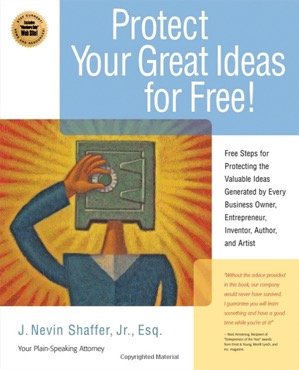Staking Claim to Your Mind Gold*
By J. Nevin Shaffer, Jr.
Who Owns Your Mind Gold?
There is a story told of a man who quit digging for gold three feet from the mother lode. The new owner first properly “staked his claim” and then continued digging. Three feet later, when he struck gold, it belonged to him and not the man who dug almost all the way to pay dirt. The ability to demonstrate ownership is critical to capitalizing on the gold from your mind as well.
The talks speakers give are the processed gold of their minds. Their intellectual capital if you will, their Mind Gold, and their intellectual property. Just like real, tangible, property, authors and artists can take steps to protect their intellectual property Mind Gold or not, the choice is theirs.
5 Steps to Staking Claim to Your Mind Gold
-
Be Original.
Copyright Law protects original works of art and authorship for your life plus fifty years to a minimum degree the instant the artwork or speech is reduced to a tangible form. You get no rights, and possibly plenty of trouble as we will see later, by copying someone else’s material. Just because it is easy to copy things from the internet, does not make it yours. -
Get It In Writing.
If you hire some one outside your business to create material for you, stake your claim to what you are paying for by requiring the independent contractor (think IBM hiring the, now, richest man in the world, independent contractor Bill Gates) to agree to two things. First they must agree in writing that the work they do will be original and second they must agree in writing to transfer the copyrights to the original work to you. (It’s this second thing IBM did not do.) -
Put Your Copyright Notice On It.
Even though the law does not require you to put a copyright notice on the original works you create, it is a whole lot easier to prove something is yours if your name is on it. Don’t be bashful; put it on every page, it is “OK”. A proper copyright notice consists of three elements: The word “Copyright” or the symbol ©, the year of first publication and the copyright owner’s name. -
Register the Good Stuff.
It may be that you are a prolific author of original works. You may only create a single work a year. In either case, you must determine whether or not what you created is worthy of protecting to the maximum degree under the law. The cost benefit analysis is: Cost:$30; Benefit: statutory damages payable for willful infringement of registered copyright material including Court costs, attorney’s fees, and up to $150,000 per infringement. This should be viewed as powerful leverage to get your competitors to stop copying your material not necessarily what you will accept to end the infringement. If they infringe unregistered material, however, you can recover only what you can actually prove you lost due to their infringement, a very much more difficult job in most cases. -
Layer Your Protections.
Since works of art and authorship are primarily protected by copyright law, that is where the primary steps to staking your claim must be taken. But you should consider all the ways you may be able to protect your Mind Gold. Your speech or work of art may concern a useful, new and non-obvious improvement on a pre-existing device or system. If so, it is protectable by a patent. It may be offered under a brand of materials unique to you. If so, the brand should be protected by registration as your trademark. It may be a product of secret research techniques. If so, you should keep the techniques protected as a trade secret. In conclusion, remember, just as you can stay out in the cold longer if you have on many layers of clothing, the more steps you take to protect your Mind Gold the better.
[* As published in the Summer 2004 issue of Sharing Ideas; The International Magazine for Speakers, Meeting Planners, Agents, Bureaus, Trainers, Seminar Leaders.]
About the Author
Nevin is a licensed patent attorney and has been practicing Intellectual Property law for 25 years. You may contact Nevin at his Gulf Breeze office in the Harbourtown complex, Suite 43, or by phone or email at 850-934-4124 and nevin@jnevinshaffer.com. You can also get information about Nevin and his practice at his website at www.nevinshaffer.com. Nevin is a professional speaker as well. If your organization would like to have him speak about these topics, please contact him! Note: Nevin speaks in plain English and not in unintelligible lawyer gibberish!
© Copyright 2004 JNSJrPA. The material in this article is provided for general informational purposes only and should not be considered a legal opinion nor relied upon in lieu of specific legal advice. Accordingly, readers who require legal services in connection with their specific circumstances should consult an attorney competent in the field of intellectual property.

